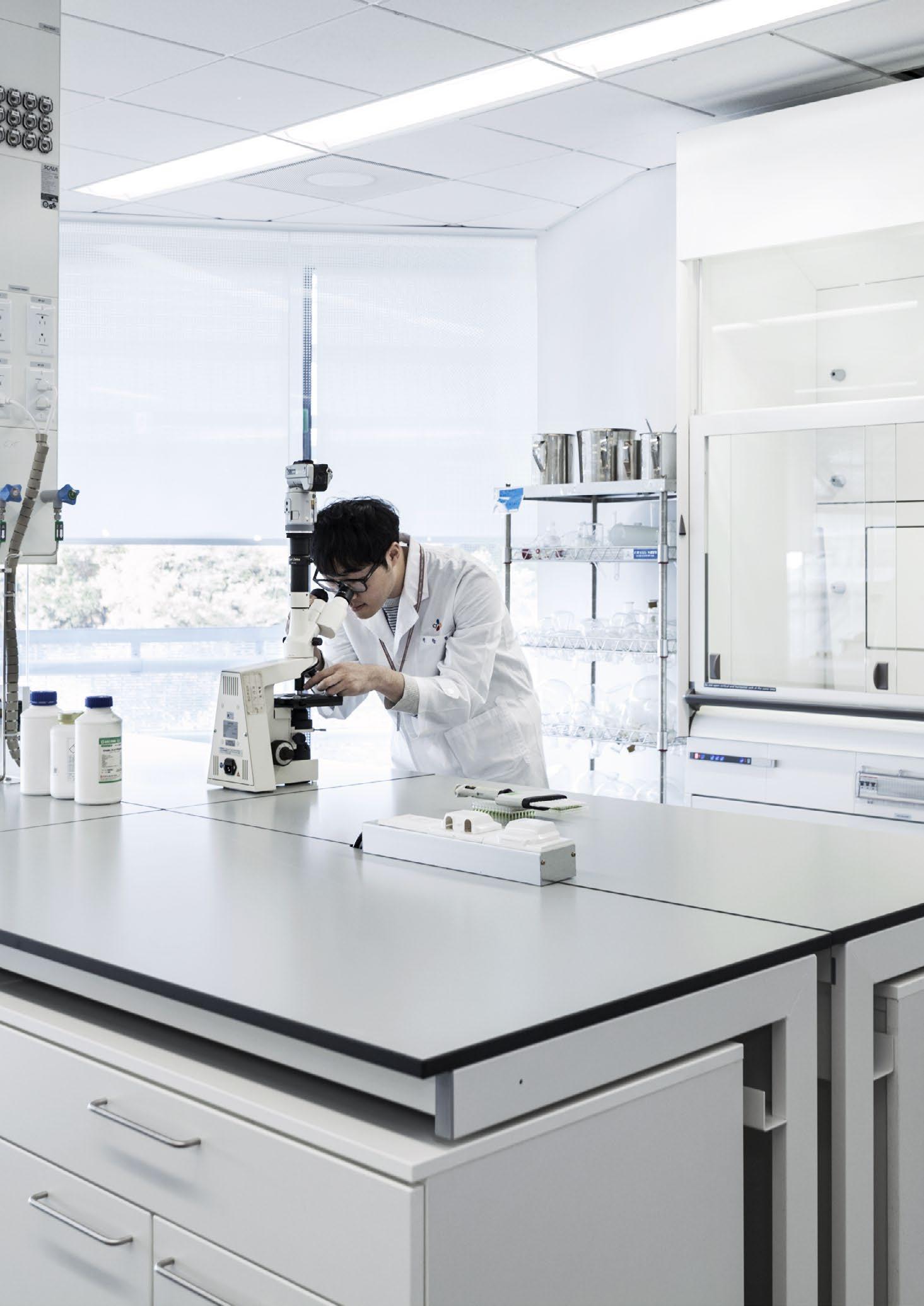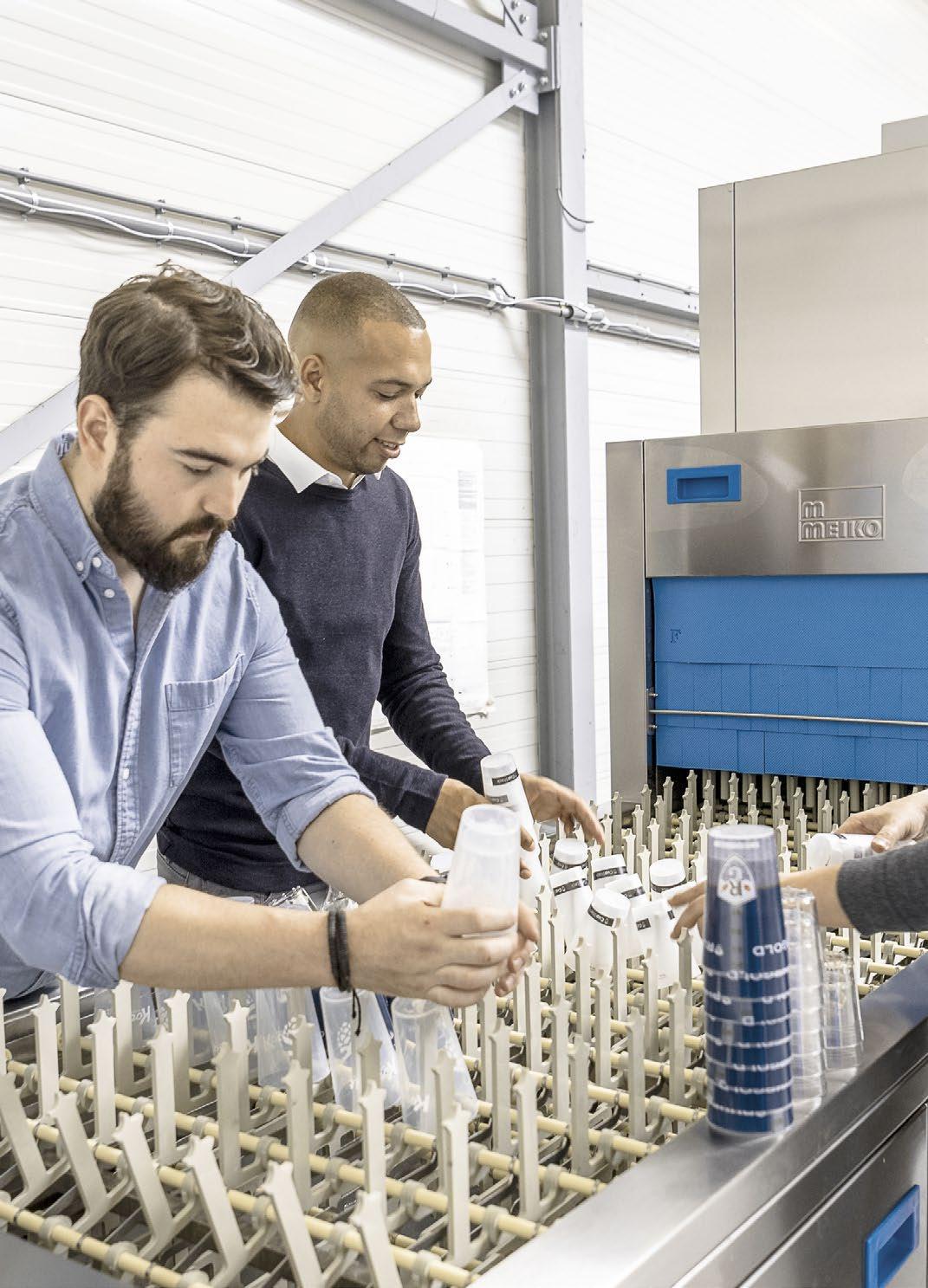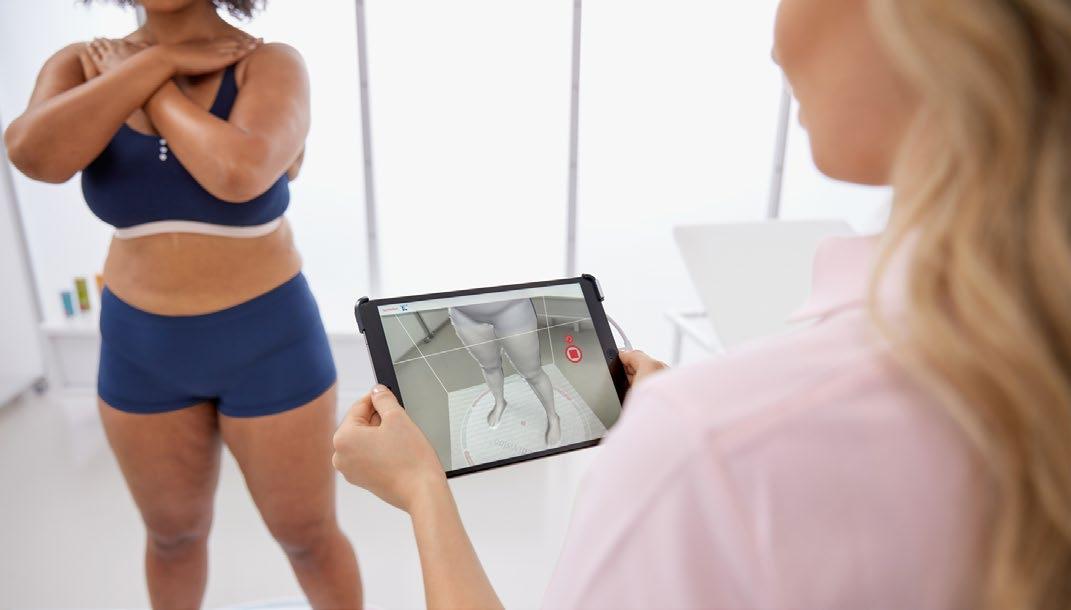
4 minute read
Health Industries Weathering the Storm of a Global Pandemic
Lead Article
By Cluster Manager – Health, Hannah Niederbuchner
Advertisement
Almost 18 months after Australia identified the first COVID-19 cases, the country has shown resilience and undergone many fast-paced developments in the Health Sector.
Watch the webinar held by German Australian Chamber of Industry and Commerce, in cooperation with Germany Trade & Invest (GTAI) exploring the significant opportunities in Digital Health.
With Australia’s borders still closed and key industries struggling with the impact of missing cross-border movements, the Australian economy weathered the storm, increasing by a steady 3.1 % / 3.4 % in the last two quarters, with growth rates across various health segments. For example, there was an increase of 2.7% in telehealth1, 5.0% in pharmaceuticals manufacturing2, and 4.7%3 in medical equipment manufacturing.
The Australian Health Sector is worth approximately $5.7 billion. Healthcare is the largest employing industry in Australia with 1.7 million employees. Health expenditures per capita equalled $7,485 in 2017-18, making Australia one of the world’s top 10 countries in terms of per capita expenditure.
Notably, Australia relies heavily on imports to cover the market demand for medical technology products: 85% of medical technology devices are imported, with Germany being one of the main supplier countries.
1 https://www.health.gov.au/ministers/ the-hon-mark-coulton-mp/media/ regional-australia-hits-10-million-telehealthservices#:~:text=Audience%3A-,Ten%20 million%20telehealth%20services%20have%20 been%20delivered%20to%20more%20 than,pandemic%2C%20Medicare%20data%20 has%20shown.
2 IBIS World, Pharmaceutical Product Manufacturing in Australia, April 2021
3 https://www.statista.com/statistics/716902/ medical-equipment-market-size-inaustralia/#:~:text=Total%20medical%20 equipment%20market%20size%20in%20 Australia%202017%2D2020&text=In%20 2020%2C%20it%20was%20 estimated,production%20and%20imports%20 minus%20exports. Lead Article
4 https://www.news.com.au/finance/ economy/federal-budget/federal-budget2021-government-announces-largestpackage-10b-aged-care-funding/news-story/ b641610cba7c5e88d34cf1dd04955fd0
Despite non-negligible struggles and disruptions such as forced pauses of clinical trials, COVID-19 also accelerated change across the health ecosystem and sped up adaptation to a new global reality.
The Australian society faces internal pressures driven by: - rising chronic disease rates, - an aging population - inequitable access to services, and - gaps in the highly casualised workforce, infrastructure and across the clinical supply chain. However, the pandemic response has highlighted opportunities in the Australian Health Industry, particularly telehealth and virtual care, leveraging technology to support patients and practitioners.
A temporary change in the Medical Benefits Scheme (MBS) for telehealth arrangements has enabled widespread adoption, welcomed with broad support from the Australian public. A study by the University of Sydney found that 62% of respondents rated their telehealth experience as good as or better than traditional in-person medical appointments.
At the end of last year, the German Australian Chamber of Industry and Commerce, in cooperation with Germany Trade & Invest (GTAI), held a webinar exploring the significant opportunities in Digital Health, with guest speakers from Coviu and our Premium Partner SAP. The online event highlighted the positive impact of telehealth platforms and digital applications in the health and hospital setting.
Federal funding made available by the Modern Manufacturing Initiative, open for medical product manufacturing projects as one of the National Manufacturing Priorities, further supports developments in the industry. Furthermore, the Entrepreneurs’ Programme grant stream recently awarded matched funding to two innovative Australian medical manufacturers, helping them complete clinical trials and establish local manufacturing facilities. Governmental funding and grant programs are continuously strengthening Australia as a lucrative target market for industry players.
Another boost to the industry came from the Federal Budget 2021, with Australian Treasurer Josh Frydenberg announcing funding for essential services, including mental health, disability support and providing $17.7 billion to overhaul and reform the aged care sector. 5 In addition to that, another $503 million will go into transforming digital health in Australia.6
5 https://www.news.com.au/finance/ economy/federal-budget/federal-budget2021-government-announces-largestpackage-10b-aged-care-funding/news-story/ b641610cba7c5e88d34cf1dd04955fd0
6 https://www.pulseitmagazine.com.au/ australian-ehealth/6055-budget-2021-govtpromises-503m-to-transform-digital-healthin-australia?utm_source=Pulse%2BIT++eNewsletters&utm_campaign=df3afac5e5- PulseIT_eNews_13_05_2021&utm_ medium=email&utm_term=0_b39f06f53fdf3afac5e5-413233288&goal=0_ b39f06f53f-df3afac5e5-413233288&mc_ cid=df3afac5e5&mc_eid=e077a9addf
With health being one of the Chamber’s industries of expertise with a diverse member base from various segments, this issue of Accelerate focuses on our member companies’ stories and innovative concepts to modernise the health industry.
Our member companies reach across all sectors of health: Medical Technology, Life Sciences, Pharmaceuticals, Hospitals & Aged Care Services, and the Digital Health space.
In this magazine, find out how hygiene technologies offer critical safety solutions for the care service industry (Meiko), how life sciences businesses leverage their expertise to fight devastating illness (Merck) and to gain insights into cell and gene therapy (Bayer).
Our members’ feature articles also showcase the digital future of taking precise patient measurements (medi) and demonstrate how big data analytics have improved infection predications during COVID-19 (Fresenius).
Read on to find out about Federal Court action against companies in breach of the Therapeutic Goods Advertising Code (Hall & Wilcox) and learn more about pharmaceutical tendering (Waldner).
The remarkable diversity and continuous innovations highlight the resilience and fast adaptation of the sector, leaving us excited for the future of Health in Australia.










